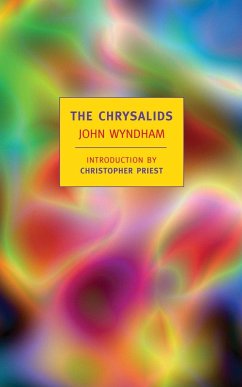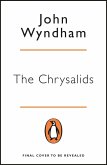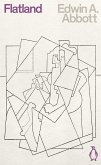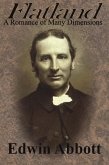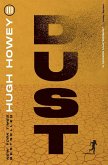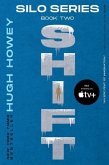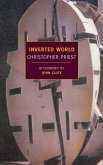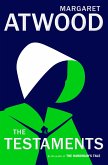The Chrysalids is set in the future after a devastating global nuclear war. David, the young hero of the novel, lives in a tight-knit community of religious and genetic fundamentalists, who exist in a state of constant alert for any deviation from what they perceive as the norm of God s creation, deviations broadly classified as offenses and blasphemies. Offenses consist of plants and animals that are in any way unusual, and these are publicly burned to the accompaniment of the singing of hymns. Blasphemies are human beings ones who show any sign of abnormality, however trivial. They are banished from human society, cast out to live in the wild country where, as the authorities say, nothing is reliable and the devil does his work. David grows up surrounded by admonitions: KEEP PURE THE STOCK OF THE LORD; WATCH THOU FOR THE MUTANT.
At first he hardly questions them, though he is shocked when his sternly pious father and rigidly compliant mother force his aunt to forsake her baby. It is a while before he realizes that he too is out of the ordinary, in possession of a power that could doom him to death or introduce him to a new, hitherto-unimagined world of freedom.
The Chrysalids is a perfectly conceived and constructed work from the classic era of science fiction. It is a Voltairean philosophical tale that has as much resonance in our own day, when genetic and religious fundamentalism are both on the march, as when it was written during the Cold War.
Hinweis: Dieser Artikel kann nur an eine deutsche Lieferadresse ausgeliefert werden.
At first he hardly questions them, though he is shocked when his sternly pious father and rigidly compliant mother force his aunt to forsake her baby. It is a while before he realizes that he too is out of the ordinary, in possession of a power that could doom him to death or introduce him to a new, hitherto-unimagined world of freedom.
The Chrysalids is a perfectly conceived and constructed work from the classic era of science fiction. It is a Voltairean philosophical tale that has as much resonance in our own day, when genetic and religious fundamentalism are both on the march, as when it was written during the Cold War.
Hinweis: Dieser Artikel kann nur an eine deutsche Lieferadresse ausgeliefert werden.
John Wyndham s The Chrysalids anticipates and surpasses many of today s dystopian thrillers . . . The Chrysalids explores intolerance and bigotry with satisfying complexity as it races toward an ending that is truly unpredictable.
The Seattle Times
One of the most thoughtful post-apocalypse novels ever written. Wyndham was a true English visionary, a William Blake with a science doctorate.
David Mitchell
A remarkably tender story of a post-nuclear childhood . . . It has, of course, always seemed a classic to most of its three generations of readers . . . It has become part of a canon of good books.
The Guardian
It is quite simply a page-turner, maintaining suspense to the very end and vividly conjuring the circumstances of a crippled and menacing world, and of the fear and sense of betrayal that pervade it. The ending, a salvation of an extremely dubious sort, leaves the reader pondering how truly ephemeral our version of civilization is . . .
Boston Globe
[Wyndham] was responsible for a series of eerily terrifying tales of destroyed civilisations; created several of the twentieth century's most imaginative monsters; and wrote a handful of novels that are rightly regarded as modern classics.
The Observer (London)
Science fiction always tells you more about the present than the future. John Wyndham's classroom favourite might be set in some desolate landscape still to come, but it is rooted in the concerns of the mid-1950s. Published in 1955, it's a novel driven by the twin anxieties of the cold war and the atomic bomb . . . Fifty years on, when our enemy has changed and our fear of nuclear catastrophe has subsided, his analysis of our tribal instinct is as pertinent as ever.
The Guardian (London)
Sometimes you just need a bit of soft-core sci-fi, and Wyndham s 1950 s classic, newly back in print, fully delivers.
Thicket Magazine
[A]bsolutely and completely brilliant . . . The Chrysalids is a top-notch piece of sci-fi that should be enjoyed for generations yet to come.
The Ottawa Citizen
John Wyndham's novel . . . is a famous example of 1950s Cold War science fiction, but its portrait of a community driven to authoritarian madness by its overwhelming fear of difference in this case, of genetic mutations in the aftermath of nuclear war finds its echoes in every society.
The Scotsman
The Chrysalids comes heart-wrenchingly close to being John Wyndham's most powerful and profound work.
SFReview.net
The Seattle Times
One of the most thoughtful post-apocalypse novels ever written. Wyndham was a true English visionary, a William Blake with a science doctorate.
David Mitchell
A remarkably tender story of a post-nuclear childhood . . . It has, of course, always seemed a classic to most of its three generations of readers . . . It has become part of a canon of good books.
The Guardian
It is quite simply a page-turner, maintaining suspense to the very end and vividly conjuring the circumstances of a crippled and menacing world, and of the fear and sense of betrayal that pervade it. The ending, a salvation of an extremely dubious sort, leaves the reader pondering how truly ephemeral our version of civilization is . . .
Boston Globe
[Wyndham] was responsible for a series of eerily terrifying tales of destroyed civilisations; created several of the twentieth century's most imaginative monsters; and wrote a handful of novels that are rightly regarded as modern classics.
The Observer (London)
Science fiction always tells you more about the present than the future. John Wyndham's classroom favourite might be set in some desolate landscape still to come, but it is rooted in the concerns of the mid-1950s. Published in 1955, it's a novel driven by the twin anxieties of the cold war and the atomic bomb . . . Fifty years on, when our enemy has changed and our fear of nuclear catastrophe has subsided, his analysis of our tribal instinct is as pertinent as ever.
The Guardian (London)
Sometimes you just need a bit of soft-core sci-fi, and Wyndham s 1950 s classic, newly back in print, fully delivers.
Thicket Magazine
[A]bsolutely and completely brilliant . . . The Chrysalids is a top-notch piece of sci-fi that should be enjoyed for generations yet to come.
The Ottawa Citizen
John Wyndham's novel . . . is a famous example of 1950s Cold War science fiction, but its portrait of a community driven to authoritarian madness by its overwhelming fear of difference in this case, of genetic mutations in the aftermath of nuclear war finds its echoes in every society.
The Scotsman
The Chrysalids comes heart-wrenchingly close to being John Wyndham's most powerful and profound work.
SFReview.net

